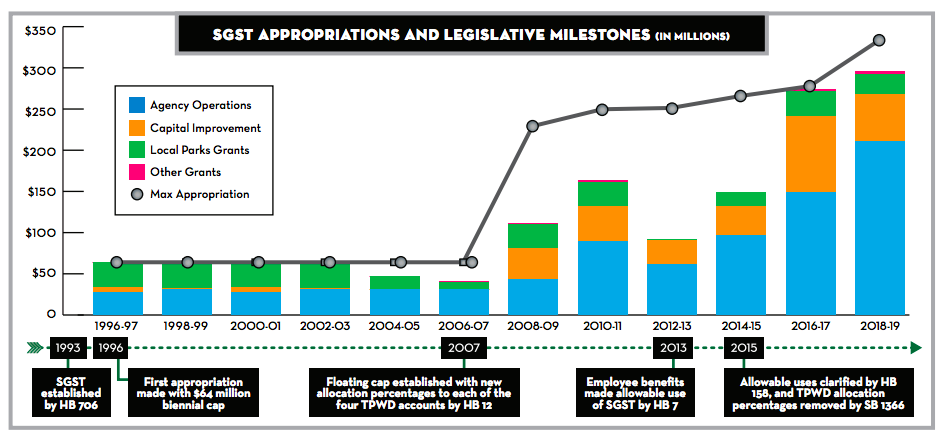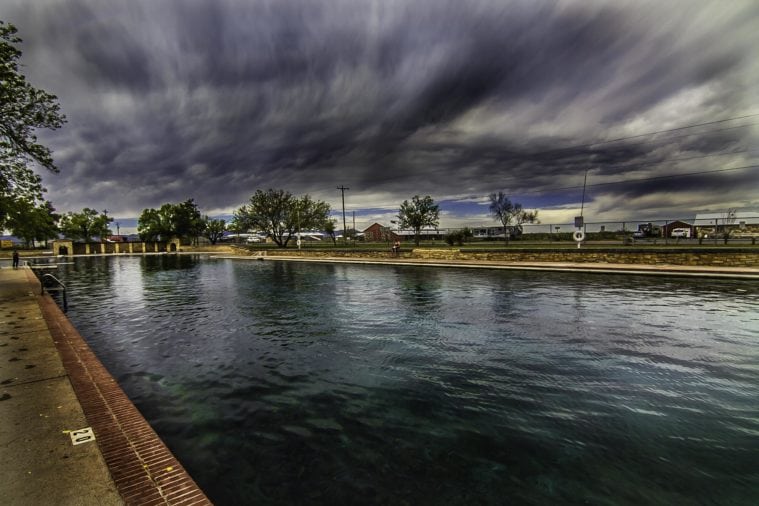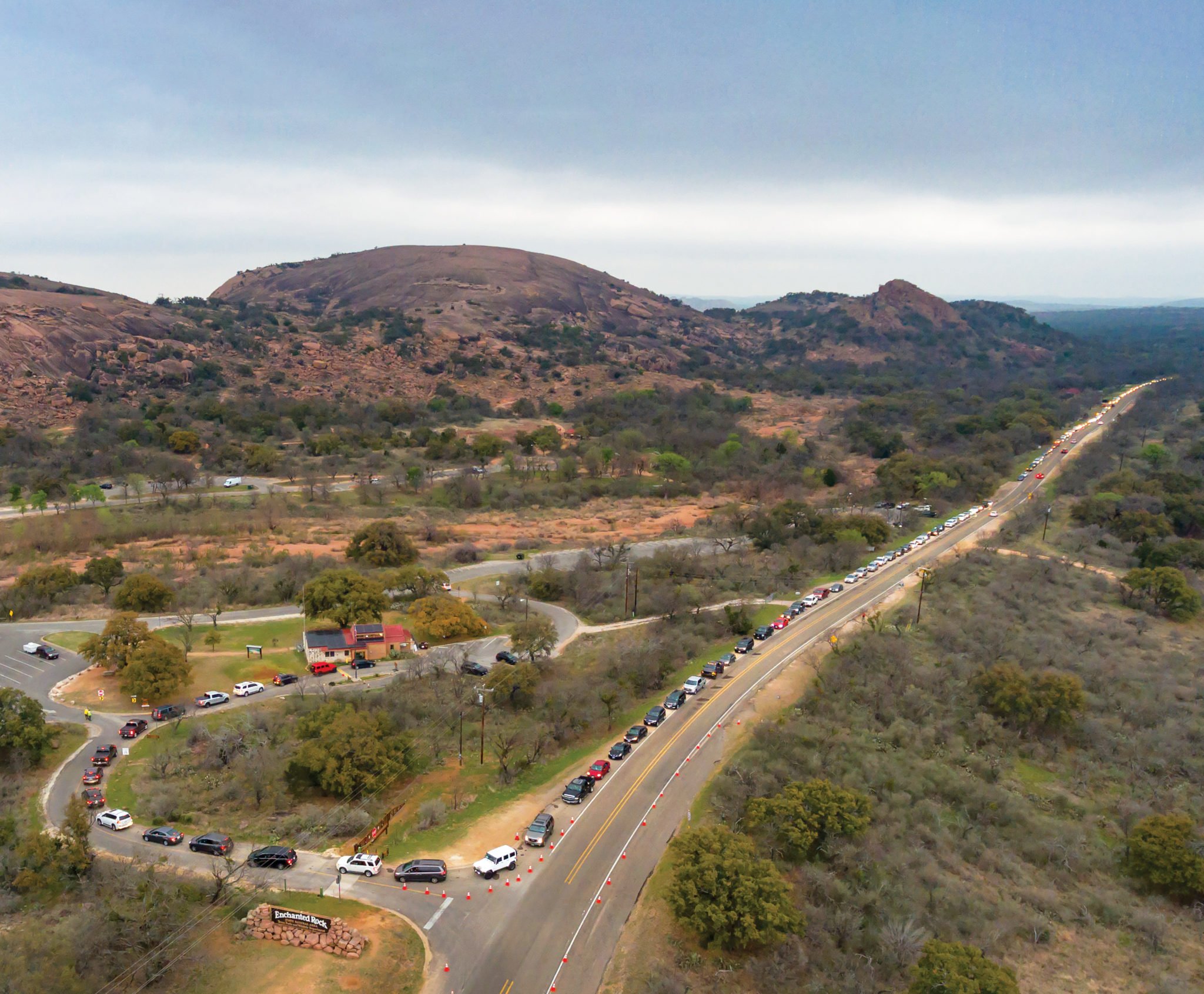Texas state parks have been a convenient piggy bank for the Legislature whenever money was short elsewhere, but this session they got their due. Lawmakers put more funding than ever into state parks, and additionally are giving voters a chance to approve a constitutional amendment this November to ensure a long-term source.
The amendment, passed by more than two-thirds of the House and Senate and signed by Governor Greg Abbott this weekend, is basically a fulfillment of funding that was promised in 1993. That year, lawmakers dedicated a portion of revenue from the sales tax on sporting goods to fund state parks — 94 percent of the revenue was meant for parks and the remaining 6 percent to the state’s 22 historic sites. Since then, though, legislators have consistently appropriated far less than parks’ full share, moving the money around to other parts of the budget and leaving some of the most beautiful and popular places in the state woefully underfunded. Until 2007, state parks’ slice of the sporting goods tax was capped at $32 million. Parks have received less than half of the dedicated revenue since 1993.

The new constitutional amendment, which a majority of voters must approve this November, would guarantee that parks and historic sites get their share into the future. Ultimately, it’s a matter of catching up with intent from 1993.
In addition to the constitutional amendment, lawmakers ponied up funds — the full $322 million from the sporting goods tax revenue earmarked for state parks — that will be appropriated regardless of the November election. That’s about 10 times what parks were allotted in 2007, and marks the third consecutive session that parks got their full share owed under the law.
The success for state parks this session is about as good as it gets, according to George Bristol, the founder of the Texas Coalition for Conservation and former chair of the Texas State Parks Advisory Committee and Audubon Texas. Bristol has been lobbying the Legislature for the past nine sessions.
Advocates hope the Lege’s newfound appreciation for wide open spaces helps address issues caused by record visitor numbers (nearly 10 million in fiscal year 2017). Advance online reservations are just about the only assurance of getting in to the most popular parks during busy periods.
“We need more parks, and more parks close to our major metropolitan areas,” Bristol said.

San Solomon Springs at Balmorhea State Park. FLICKR/CHRIS MCINNIS

A long line to get into Enchanted Rock State Natural Area the morning of March 17, 2018. EARL NOTTINGHAM/TEXAS PARKS AND WILDLIFE